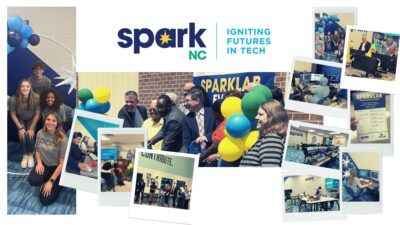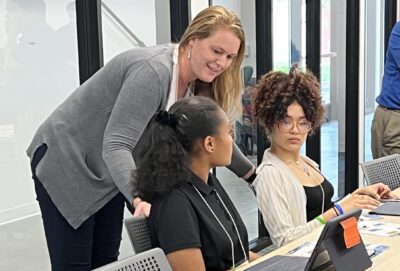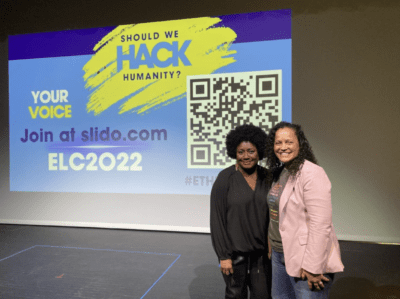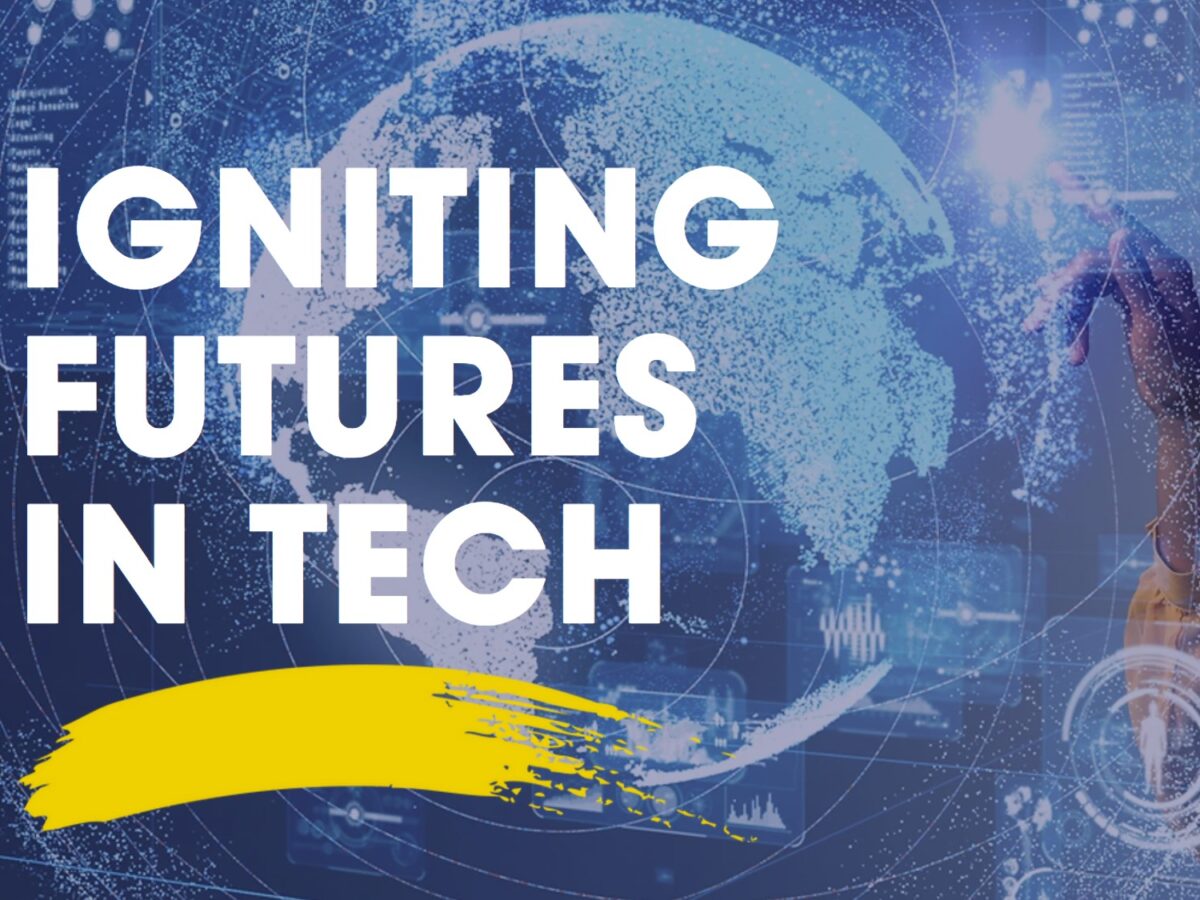
|
|
Too few students know about high-tech jobs that will dominate the future job market in North Carolina. Even fewer see pathways for themselves into these jobs.
SparkNC — one of just 13 organizations recently featured in a national report commissioned by the Carnegie Foundation for the Advancement of Teaching — is using an innovative educational approach to ensure every North Carolina student has the skills to thrive in a world transformed by technology.
But SparkNC is more than an on-ramp to high-tech fields. It’s a whole new way to do school.
That’s why SparkNC was on the agenda for the N.C. State Board Education last week.
SparkNC just released this video to explain their innovative approach.
As the work of SparkNC continues, their approach will expand beyond technology to health care and other fields.
SparkNC also has a new website. Here are the highlights.
What is SparkNC?
Funded by the N.C. General Assembly in partnership with the N.C. Department of Public Instruction, SparkNC started as an initiative within The Innovation Project, but will transition on June 30 to become its own 501(c)(3) nonprofit.
The legislature included $3 million annually in the state budget for SparkNC in 2023-24 and in 2024-25 for a pilot program. The pilot launched in the summer of 2023 in 17 school districts: Asheboro City Schools, Cabarrus County Schools, Chatham County Schools, Cumberland County Schools, Edgecombe County Schools, Elizabeth City-Pasquotank Public Schools, Granville County Schools, Guilford County Schools, Lexington City Schools, Mount Airy City Schools, New Hanover County Schools, Rockingham County Schools, Rowan-Salisbury Schools, Scotland County Schools, Vance County Schools, Wake County Public School System, and Warren County Schools.
“I support this transformative work because I want North Carolina’s education system to be future ready,” said Sen. Michael Lee, R-New Hanover, one of SparkNC’s legislative champions.
The hope is to scale the pilot eventually to all interested school districts, charter schools, and even community colleges in North Carolina.
Why is it called SparkNC?
The word spark is significant because SparkNC is about igniting the idea in each student’s head that they can have a career in technology. It’s about an educational experience that leads to the a-ha moment of, “This is for me, I can do this.”
Who are the Spark Scholars?
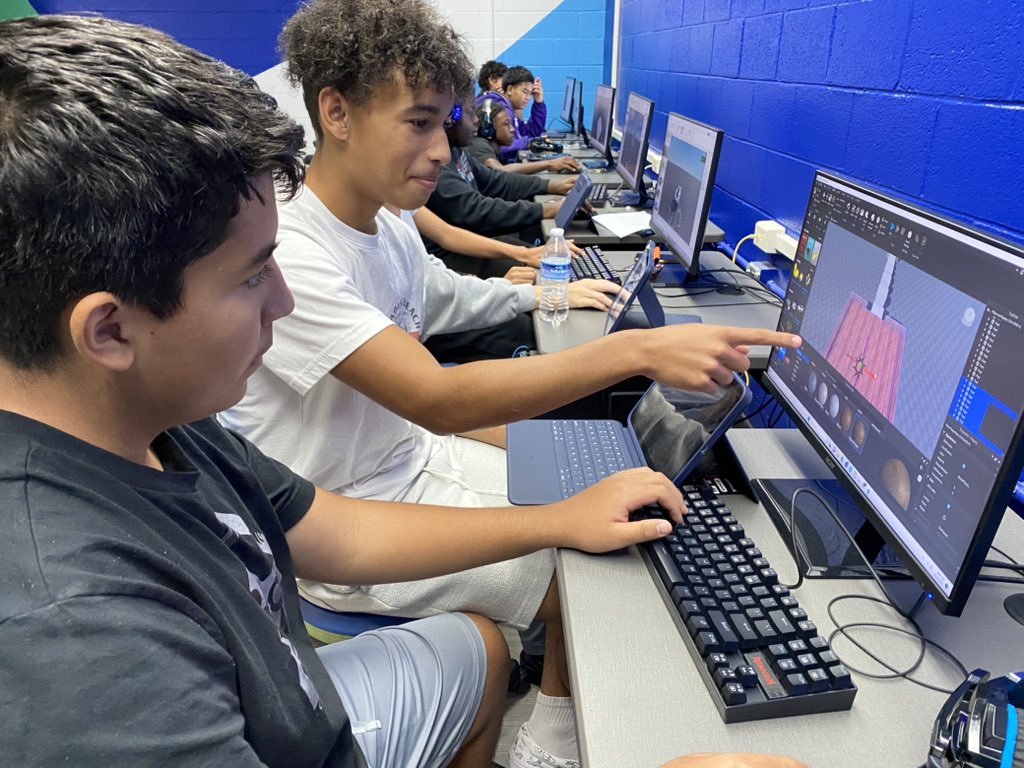
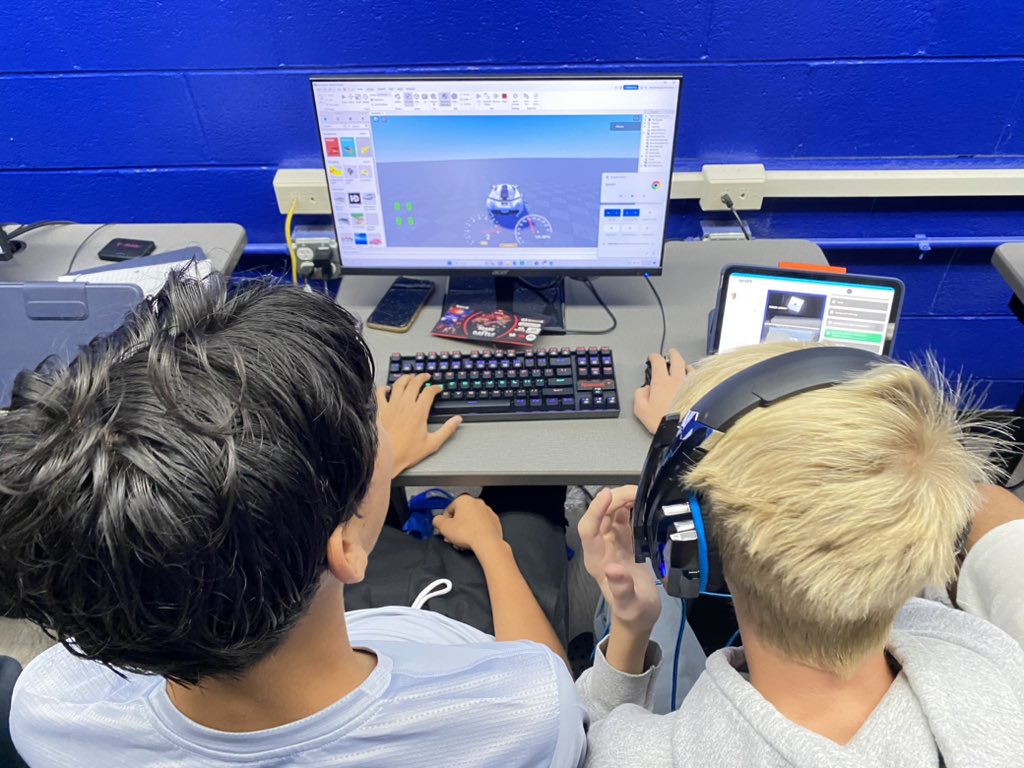
SparkNC helps students — or Spark Scholars — create their own pathways to high-tech fields
In the pilot school districts, most of the Spark Scholars are in ninth to 12th grade, and this educational approach prepares them for high-wage, socially-impactful careers in high-tech fields, currently including artificial intelligence, computer systems engineering, cybersecurity, data analytics, design UX/UI, game development and design, and software development.
Along the way, Spark Scholars track their progress on SparkNC’s adaptive learning platform. They build rich networks with educators, other students, and industry professionals throughout North Carolina. And they create robust portfolios of work to demonstrate their readiness for college and careers.
What are the SparkLabs?
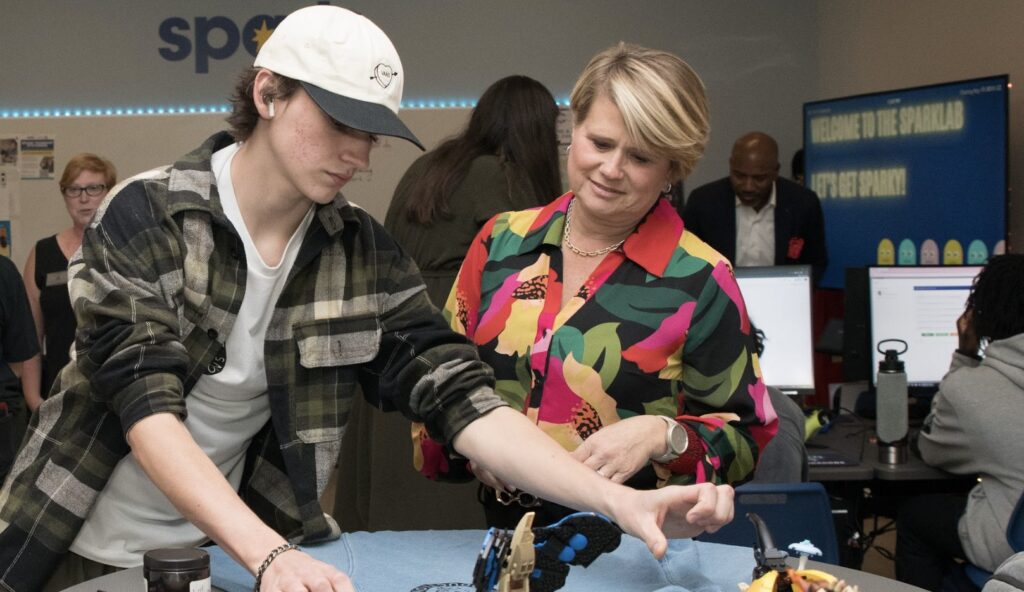
Many aspects of the Spark Scholar learning experience take place in SparkLabs, which are designed and built to be collaborative spaces for teaching and learning. Districts have built their SparkLabs in high schools, centers for innovation, and other locations in their communities. Each SparkLab has separate spaces focused on collaboration, high-tech computing, and individual work and ideation.
Every SparkLab has a hybrid teaching and learning zone that connects it with other districts’ SparkLabs, creating an interdistrict connected classroom where teachers and industry partners can teach and interact with students across the network.
Pilot districts have been excited to open their SparkLabs’ doors for learners, which news outlets have covered in Guilford, Rowan, New Hanover, Warren, and Cumberland counties.
Who are the SparkLab Leaders?
The heartbeat of SparkNC is the SparkLab Leaders. A full-time, 12-month position, these innovative educators advise and support students participating in learning experiences in SparkNC’s interdistrict model.
You can meet the SparkLab Leaders by following SparkNC on Twitter, now X.
So what is the educational approach of SparkNC?
Spark Scholars choose among three types of learning experiences:
- “Live, Interdistrict Units” are designed and led by SparkLab Leaders and industry experts and offered either in-person or virtually across the interdistrict network of SparkLabs.
- “Experiential Units” are live, in-person events and programs such as conferences, team-based internships, job shadowing, and other hands-on learning opportunities.
- “On-Demand Units” on the SparkNC platform let learners choose from a menu of learning experiences in high-tech fields and complete them at any time and at any pace that works for them.
SparkNC’s unit catalog offers more than 50 learning experiences (and growing!) related to high-tech fields.
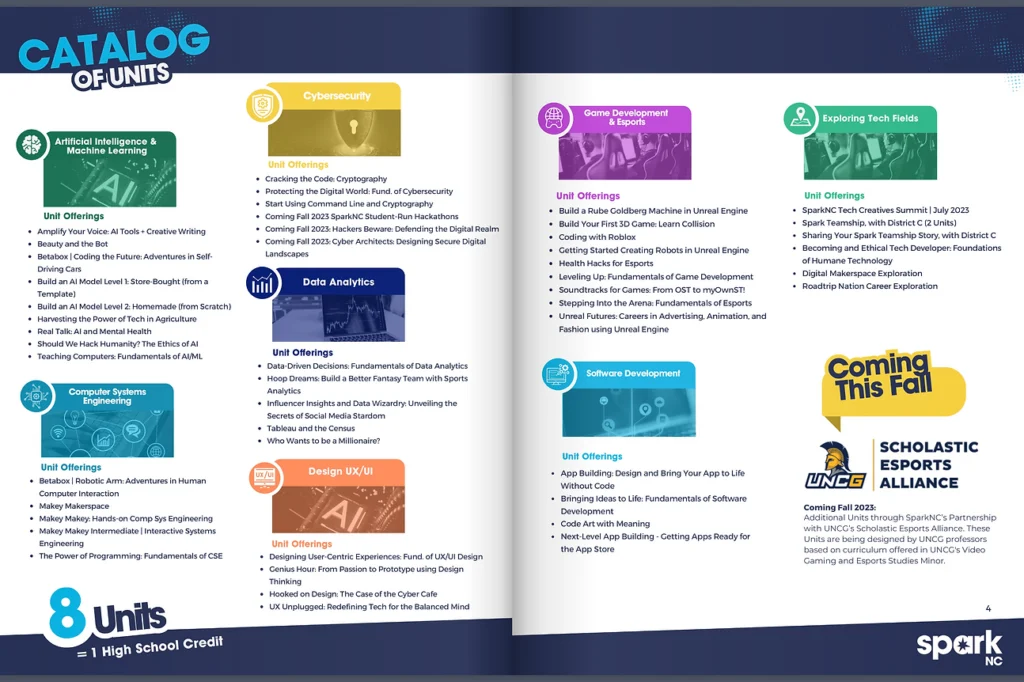
Eight units, plus a required introductory module and a capstone experience, earns a local elective course credit toward high school graduation.
Spark Scholars choose which of the units they want to take and then stack them together like building blocks.
The scholars collect evidence of their learning in personalized digital portfolios of work.
No two paths need to be the same. It’s entirely up to each Spark Scholar. Some of SparkNC’s learning experiences can be done individually. Many are cohort-based or can be done in teams.
Who are SparkNC’s partners?
SparkNC has a Business Advisory Council that includes representatives from SAS, Apple, IBM, Cisco, Epic Games, Live Oak Bank, and CoLab, and a robust network of programmatic partners from the tech industry, K-12, and higher education. Partners design and deliver learning experiences and host special events to help students ignite their futures in tech.
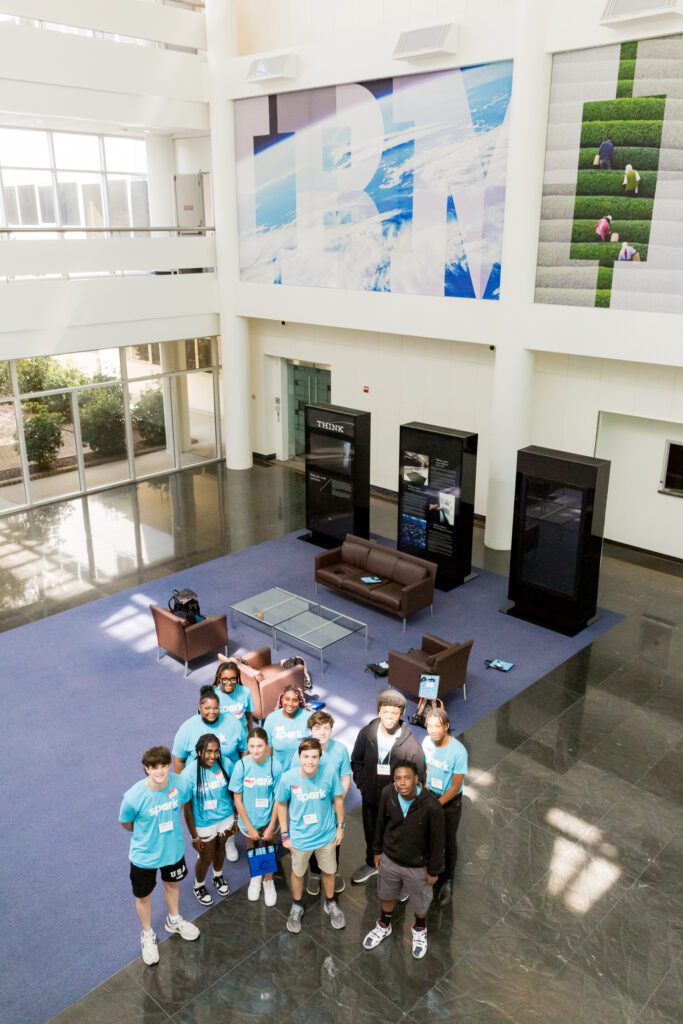
SparkNC has worked with District C to design Spark Teamship, an opportunity for students to engage with tech industry partners through team-based internships.
Get involved in this new experience of education
SparkNC is learner-centered, industry-relevant, and competency-based.
SparkLabs replace classrooms.
SparkLab Leaders facilitate, design, mentor, connect, and teach.
Spark Scholars take stackable units instead of semester- or year-long courses.
Units give students choices and opportunities for real-world learning.
Instead of getting an education, Spark Scholars experience education.
Here is how you can get involved with SparkNC.




